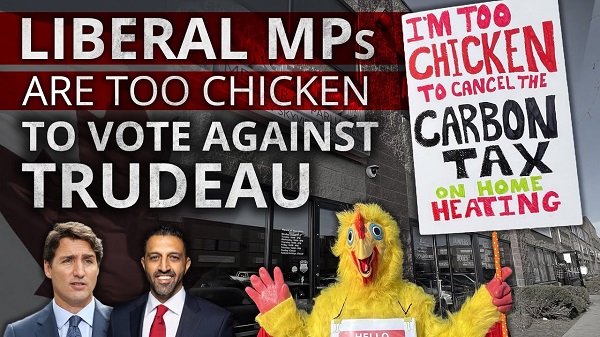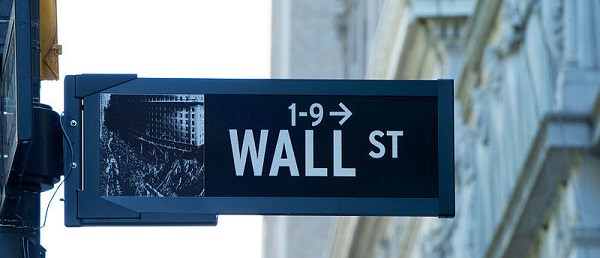Business
Why should Liberal MPs defend the carbon tax now?

From the Canadian Taxpayers Federation
Prime Minister Justin Trudeau’s carbon tax should be tucked under his arm while he doesn’t let the door hit them on the way out.
And Liberal caucus members need to make sure that happens.
Those in doubt need to ask themselves two questions.
Practically, why should Canadians keep paying the carbon tax for another few months before the next election?
Politically, why should government MPs keep paying a price with voters because of the carbon tax?
The carbon tax can be slayed on Wednesday during the Liberal party’s emergency caucus meeting.
Caucus finally rose up and finally forced the prime minister to face the reality that he can’t get re-elected.
But that’s only half of the job.
The problem isn’t just one person. It’s the policies. And Trudeau’s trademark carbon tax is one of his biggest failures. Replacing the PM while keeping the carbon tax is like switching the blackjack dealer while still facing a stacked deck.
And the Liberal caucus knows this.
Those Liberal MPs have been yelled at by their constituents about the carbon tax for years.
Hardworking people have been telling these MPs they can’t afford the carbon tax and it’s unfair to be punished for driving to work, heating their homes and buying food.
Those MPs have seen their constituents’ heating bills, the costs of their commutes and the invoices for their businesses.
They know the carbon tax adds about $13 to the cost of filling a minivan and about $20 extra to fill a pickup. They know the carbon tax is costing long haul truckers about $2 billion this year and they know it will cost farmers $1 billion in the next five years.
They know Canada misses its emissions targets, even with the carbon tax.
And here’s the big one: these MPs know the carbon tax is getting hiked on April 1.
The timeline has to be terrifying for Liberals seeking re-election.
March 24, the House of Commons reconvenes.
The government presents its Throne speech and immediately starts facing confidence votes with all opposition parties promising to vote against the government.
Then, on April 1, the government raises the carbon tax again.
Imagine door knocking after losing a confidence vote and raising the carbon tax.
Imagine being an MP from southern Ontario and a greenhouse tomato grower walks into your office with a chart showing his carbon tax costs.
Imagine trying to tell that farmer that he “gets more back” than he pays in the carbon tax.
Picture being an MP from Halifax and telling your constituents they need to buy an electric heat pump as their sole source of winter warmth before the carbon tax slaps them again.
Nova Scotia has charming weather events such as ice fog which seeps into a house like a ghost from a Dickens novel. So, most Maritime folks still need a furnace and Trudeau’s carbon tax punishes them.
These MPs have all been hollered at by their constituents who have been wounded by the carbon tax.
No matter how much the MPs may have pleaded with Trudeau behind closed doors, he kept the carbon tax and forced his MPs to defend it.
Trudeau tied this millstone to the necks of his MPs and didn’t care how much it ground them down.
But he’s leaving now.
And these Liberal MPs have the opportunity to cut the rope and free themselves from Trudeau’s carbon tax.
The Liberal caucus is holding an emergency meeting on Parliament Hill on Wednesday, and those members of Parliament need to demand an end to carbon tax then and there.
Why should they force Canadians to keep muttering profanities when they fill up their cars or pay the carbon tax charges on their heating bills?
Why should Liberal MPs face day after day of berating phone calls from constituents who don’t buy PMO talking points about the carbon tax?
The least they can do is spare Canadians the cost of the carbon tax right now and try to do the right thing in the end.
On Wednesday, Liberal MPs have to demand an end to the carbon tax.
Banks
Wall Street Clings To Green Coercion As Trump Unleashes American Energy


From the Daily Caller News Foundation
By Jason Isaac
The Trump administration’s recent move to revoke Biden-era restrictions on energy development in Alaska’s North Slope—especially in the Arctic National Wildlife Refuge (ANWR)—is a long-overdue correction that prioritizes American prosperity and energy security. This regulatory reset rightly acknowledges what Alaska’s Native communities have long known: responsible energy development offers a path to economic empowerment and self-determination.
But while Washington’s red tape may be unraveling, a more insidious blockade remains firmly in place: Wall Street.
Despite the Trump administration’s restoration of rational permitting processes, major banks and insurance companies continue to collude in starving projects of the capital and risk management services they need. The left’s “debanking” strategy—originally a tactic to pressure gun makers and disfavored industries—is now being weaponized against American energy companies operating in ANWR and similar regions.
Dear Readers:
As a nonprofit, we are dependent on the generosity of our readers.
Please consider making a small donation of any amount here. Thank you!
This quiet embargo began years ago, when JPMorgan Chase, America’s largest bank, declared in 2020 that it would no longer fund oil and gas development in the Arctic, including ANWR. Others quickly followed: Goldman Sachs, Wells Fargo, and Citigroup now all reject Arctic energy projects—effectively shutting down access to capital for an entire region.
Insurers have joined the pile-on. Swiss Re, AIG, and AXIS Capital all publicly stated they would no longer insure drilling in ANWR. In 2023, Chubb became the first U.S.-based insurer to formalize its Arctic ban.
These policies are not merely misguided—they are dangerous. They hand America’s energy future over to OPEC, China, and hostile regimes. They reduce competition, drive up prices, and kneecap the very domestic production that once made the U.S. energy independent.
This isn’t just a theoretical concern. I’ve experienced this discrimination firsthand.
In February 2025, The Hartford notified the American Energy Institute—an educational nonprofit I lead—that it would not renew our insurance policy. The reason? Not risk. Not claims. Not underwriting. The Hartford cited our Facebook page.
“The reason for nonrenewal is we have learned from your Facebook page that your operations include Trade association involved in promoting social/political causes related to energy production. This is not an acceptable exposure under The Hartford’s Small Commercial business segment’s guidelines.”
That’s a direct quote from their nonrenewal notice.
Let’s be clear: The Hartford didn’t drop us for anything we did—they dropped us for what we believe. Our unacceptable “exposure” is telling the truth about the importance of affordable and reliable energy to modern life, and standing up to ESG orthodoxy. We are being punished not for risk, but for advocacy.
This is financial discrimination, pure and simple. What we’re seeing is the private-sector enforcement of political ideology through the strategic denial of access to financial services. It’s ESG—Environmental, Social, and Governance—gone full Orwell.
Banks, insurers, and asset managers may claim these decisions are about “climate risk,” but they rarely apply the same scrutiny to regimes like Venezuela or China, where environmental and human rights abuses are rampant. The issue is not risk. The issue is control.
By shutting out projects in ANWR, Wall Street ensures that even if federal regulators step back, their ESG-aligned agenda still moves forward—through corporate pressure, shareholder resolutions, and selective financial access. This is how ideology replaces democracy.
While the Trump administration deserves praise for removing federal barriers, the fight for energy freedom continues. Policymakers must hold financial institutions accountable for ideological discrimination and protect access to banking and insurance services for all lawful businesses.
Texas has already taken steps by divesting from anti-energy financial firms. Other states should follow, enforcing anti-discrimination laws and leveraging state contracts to ensure fair treatment.
But public pressure matters too. Americans need to know what’s happening behind the curtain of ESG. The green financial complex is not just virtue-signaling—it’s a form of economic coercion designed to override public policy and undermine U.S. sovereignty.
The regulatory shackles may be coming off, but the private-sector blockade remains. As long as banks and insurers collude to deny access to capital and risk protection for projects in ANWR and beyond, America’s energy independence will remain under threat.
We need to call out this hypocrisy. We need to expose it. And we need to fight it—before we lose not just our energy freedom, but our economic prosperity.
The Honorable Jason Isaac is the Founder and CEO of the American Energy Institute. He previously served four terms in the Texas House of Representatives.
Automotive
Tesla Vandals Keep Running Into The Same Problem … Cameras


From the Daily Caller News Foundation
By Hudson Crozier
People damaging Teslas in anger toward their owners and Elon Musk aren’t picking up on the fact that the vehicles have multiple cameras capable of catching them in the act.
At least nine perpetrators have been caught on video keying, writing graffiti or otherwise defacing Tesla vehicles in parking lots across the U.S. in the month of March alone. Most have led to an arrest or warrant based partly on the footage, which Tesla’s “Sentry Mode” automatically films from the side of the unattended vehicle when it detects human activity nearby.
“Smile, you’re on camera,” Tesla warned in a March 20 X post about its Sentry Mode feature. Musk’s company has been working to upgrade Sentry Mode so that the vehicles will soon blast music at full volume when vandals attack it. The camera system, however, has not stopped an increasing number of vandals from singling out Tesla owners, usually in protest of Musk’s work in the Trump administration for the Department of Government Efficiency (DOGE).
One incident happened on March 29, the same day leftists coordinated protests around the country for a “Global Day of Action” against Musk. That Saturday also saw alleged instances of violence at protests. The demonstrations stemmed from an online call to action by groups such as the Disruption Project, which encourages activists to foment “uprisings,” find a “target’s” home address and other confrontational tactics.
Tesla’s press team did not respond to a request for comment.
One man allegedly caught on camera keying a Tesla SUV on March 24 apologized to the owner who confronted him in a parking lot in Pennsylvania, police and media reports said. The man faces charges of criminal mischief, harassment and disorderly conduct for allegedly carving a swastika onto the vehicle.
“I have nothing against your car, and I have nothing against you,” the suspect said while the owner filmed him in the parking lot. “Obviously, I have something against Elon Musk.” The man called his own behavior “misguided.”
The defendant’s lawyer told Fox News his “client is a proud father, long-time resident, and is currently undergoing cancer treatment” and that he would not comment publicly “pending the outcome of the case.”
One of the most aggressive acts caught by Sentry Mode was in the case of a man who drove an ATV-style vehicle into a Tesla on March 25. Texas police identified the man as Demarqeyun Marquize Cox, arrested him and said he allegedly gave two other nearby Teslas the same treatment while also writing “Elon” on them. The public defender office representing Cox did not respond to a voicemail from the Daily Caller News Foundation.
Tesla cameras also caught three other people in Florida, Texas and Arizona keying and smearing bubble gum on the vehicles in March. The three suspects named by police do not have attorneys listed in county records available for contact.
Many of the vandalism cases since Trump’s return have reportedly caused thousands of dollars in damage for individual owners. For example, the bubble gum incident in Florida brought $2,623.66 in costs, while another keying incident in Minnesota brought $3,200.
Some reported attacks on Tesla vehicles and chargers have gotten the attention of federal law enforcement, including cases of alleged firebombing or shooting.
Two other suspected vandals in New York, one in Minnesota and one in Mississippi have reportedly avoided arrest for now — with one owner declining to press charges — but were all seen on the Teslas’ cameras scratching up the vehicles. Police identified the Mississippi suspect as an illegal migrant from Cuba.
One Tesla owner in North Dakota ridiculed a man who allegedly carved the letter “F” into his Cybertruck in a Costco parking lot — as seen on the Cybertruck’s camera. The defendant faces charges of criminal mischief, and county records say he is representing himself in court.
“I can’t believe this guy is potentially ruining his life to follow a political ideology,” the owner told WDAY News.
“If you’re going to vandalize these vehicles, you’re going to get caught,” the owner said.
-

 2025 Federal Election2 days ago
2025 Federal Election2 days agoPoilievre To Create ‘Canada First’ National Energy Corridor
-

 COVID-192 days ago
COVID-192 days agoMaxime Bernier slams Freedom Convoy leaders’ guilty verdict, calls Canada’s justice system ‘corrupt’
-

 Automotive2 days ago
Automotive2 days agoDark Web Tesla Doxxers Used Widely-Popular Parking App Data To Find Targets, Analysis Shows
-

 Censorship Industrial Complex2 days ago
Censorship Industrial Complex2 days agoChina announces “improvements” to social credit system
-

 Carbon Tax1 day ago
Carbon Tax1 day agoThe book the carbon taxers don’t want you to read
-

 Business2 days ago
Business2 days agoWill Trump’s ‘Liberation Day’ Tariffs End In Disaster Or Prosperity?
-

 International2 days ago
International2 days agoGermany launches first permanent foreign troop deployment since WW2
-

 Immigration2 days ago
Immigration2 days agoImmigrant background checks are unrelated to national security?







